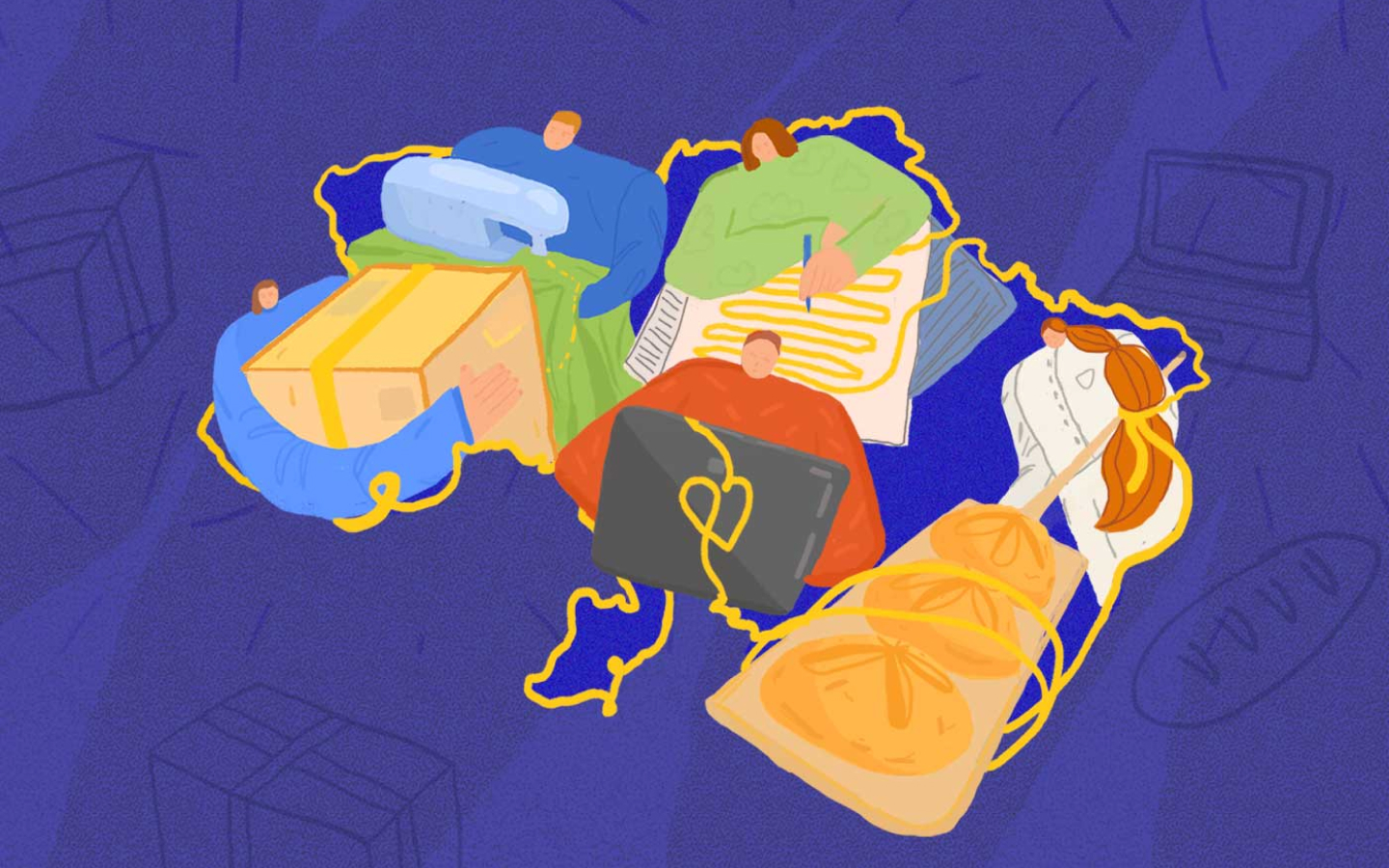Brand New Ukraine
Ukraine is Ready to Rebrand
Ukraine is developing and yet ancient, modern but traditional, full of hope and promise…and yet being oppressed and attacked.
Furthermore, Ukraine is rebranding.
I am an American and work for a Ukrainian-based creative marketing agency that consists of young, talented, savvy, and open-minded locals. Within a month, I went from writing blogs on business plans to writing the US Embassy in Kyiv for evacuation plans.
Working at a marketing agency, I frequently deal with branding, logos, and social media marketing. I believe that what we are witnessing in Ukraine is an excellent case study into brand-awareness basics. Countries, like companies, have their own brand identities.
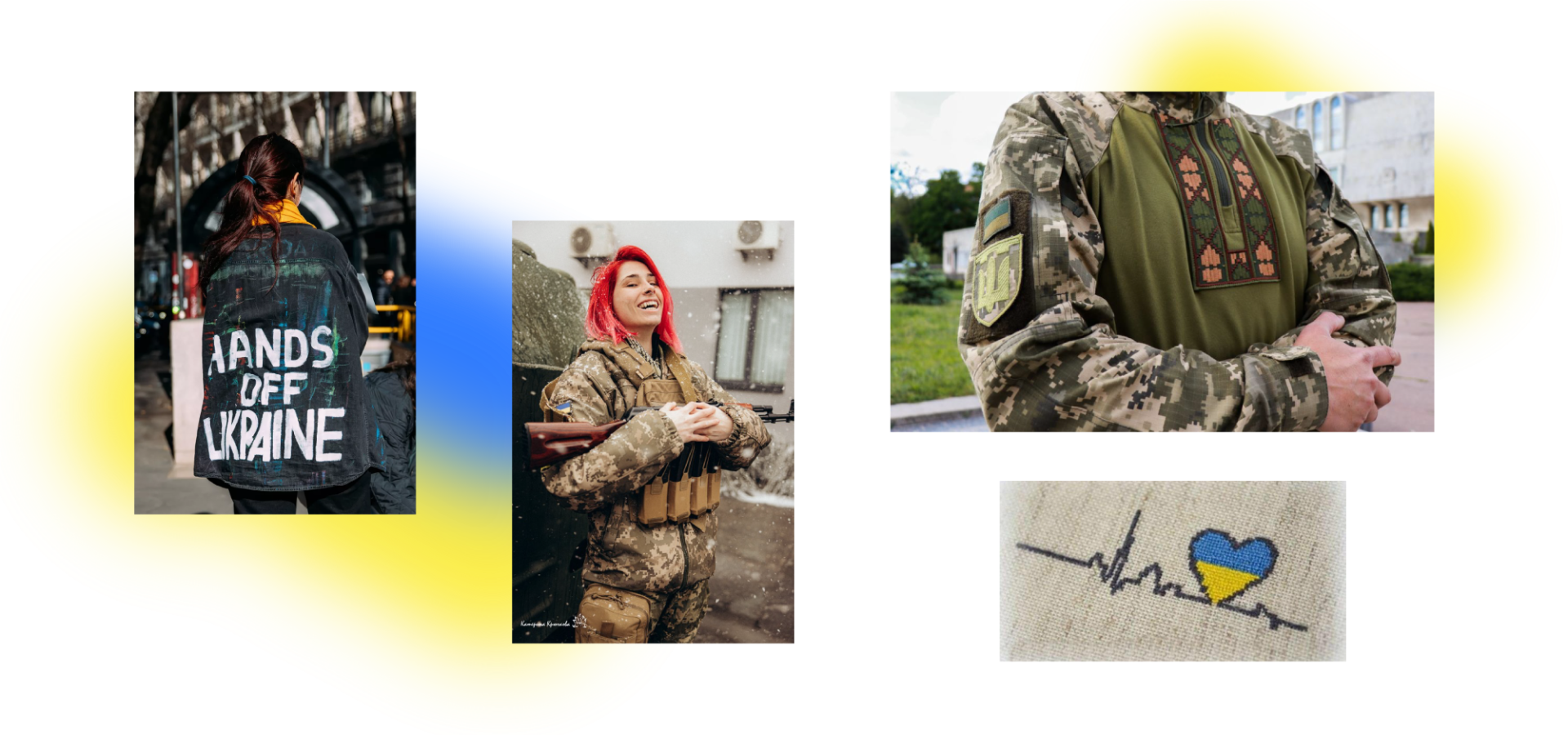
Source: https://www.volynnews.com/news/all/usia-moia-simia…
https://tsn.ua/ukrayina/u-cherkasah-stvorili-boyov…
https://www.universityoffashion.com/blog/how-the-f…
http://dneprnews.com.ua/society/2022/03/12/280455….
A lot has changed in my work, yet the differences still have traces of the daily work I did before the world fell apart during the invasion. In the first few weeks of the war, our agency quickly shifted from shock into action, creating content now aimed at sharing our own team members’ stories and spreading call-to-actions to close the sky over Ukraine.
We are currently living in the world’s first Instagram-viewed war, where everything from documentation to advocacy is being published from the likes of professional journalists to amateur activists. Fan-art for Ukrainian victory and companies donning a blue and yellow logoface can be seen on all social media channels. So, how will this brand awareness of Ukraine continue going forward?
First, we need to understand a bit of the past.
Background
Admittedly, I had an embarrassingly terrible world history education as a young American student. Therefore, when my fiancé and I moved to Kyiv, I tried to devour as many Youtube videos, Wikipedia pages, articles, and essays on the history and culture of Ukraine.
I’m clearly not a candidate to elaborate and condense thousands of years (like 200,000) of complex history into this one paragraph, but I do want to dip my digital toe into the historical waters for a second:
The ancient Ukrainian culture has survived and thrived, resisting repeated attempts from outsiders (whether the Huns, Turks, or Russians) to continually oppress its people and unique culture. A testament to their enduring fortitude is evident in modern history as well – from Holodomor, to WWII, to The Great Terror…how Russia thought these people could be suppressed is an almost comical delusion.
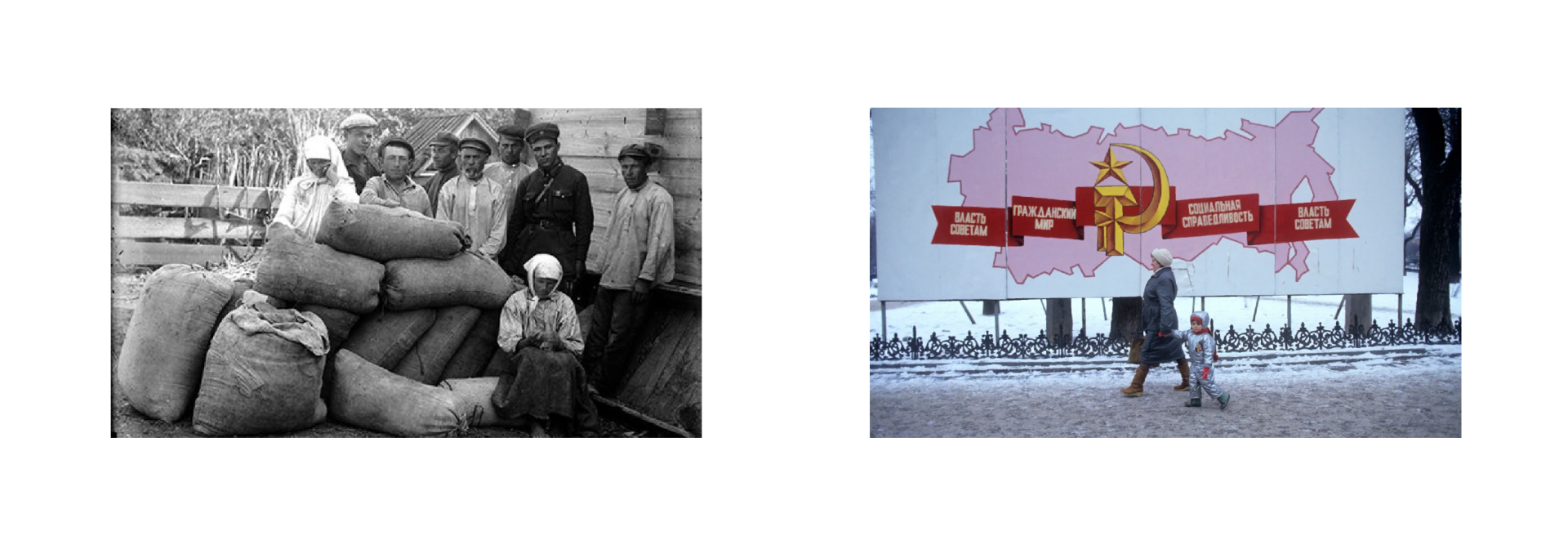
Source: https://holodomormuseum.org.ua/en/the-history-of-t…
https://www.nationalgeographic.co.uk/history-and-c…
A little-known fact about Ukraine is that it was one of the first democracies in Europe, with the Cossacks creating a people-led election system in the 16th century. 200 years later, a constitution was drafted – nearly sixty five years before the American founding fathers did so. The departure from the Soviet Union in 1991 paved the way towards independence. The Orange Revolution (2004) confronted election rigging and The Revolution of Dignity (2013) combated Russian meddling in the Ukrainian people’s future.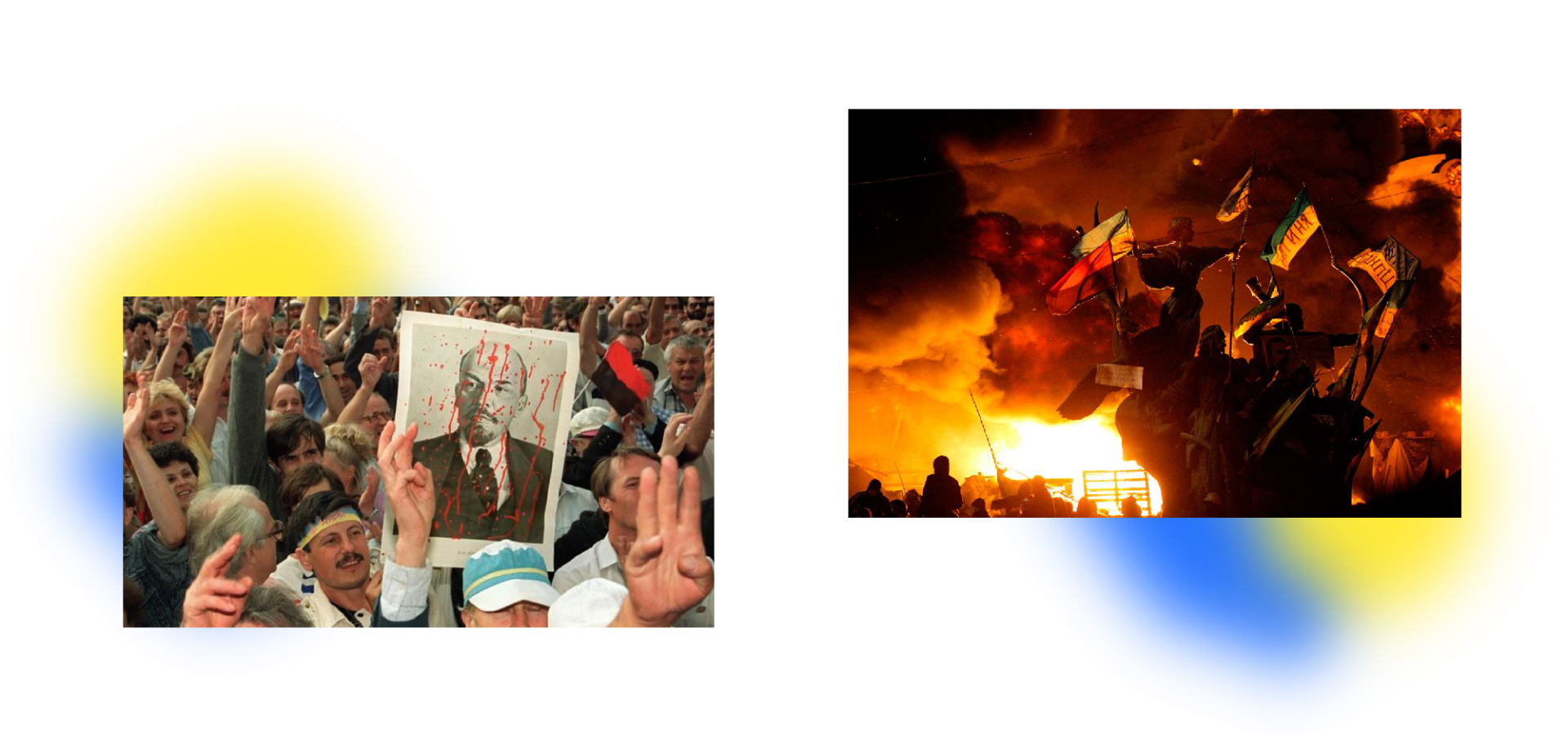
Source: https://www.rp.pl/polityka/art3343401-25-rocznica-…
https://24tv.ua/ru/legendarnye-kadry-ukrainskim-fl…
After the 1991 vote for independence, Ukraine rebranded. The country shed its Soviet past and embraced a power-to-the-people ideology. Now, the latest Russian invasion has not only brought a heightened cultural zeitgeist of all things Ukrainian, but also a new era of Ukraine’s rebranding. Ukraine has transformed from “isn’t that a part of, like, Russia?” to a brand of bad-ass freedom fighters for whom we are collectively backing and globally rooting. Ukrainians will never cease defending their independence and will fight for freedom till the end.
How countries are their own geo-brands
France. Quick, what comes to your mind? What images came up when you read that word – what associations, good or bad, do you have? That is brand identity, my friends. Whether we want to or not, we all have subconscious culture informed clichés. The language, people, customs, and the traditional music/food/costumes all paint this perception we have. These collective societal facets are not mere shallow images, rather a rightful true essence. They are what makes each country singular, yet still part of the greater whole; a beautiful portrait of how we are all the same but just doing it in uniquely different ways.
If we look at how a culture has a brandbook, it would include country mottos, flag colors, long-term economic plans, industry expansions, and foreign relations. Likewise, their brand story – some more defined and consistent than others, some positive, some negative – change depending on the current global view, the geopolitical stage, cultural influences, and more. Development of a country’s branding is a natural occurrence and can happen throughout a period of time or in an overnight burst, like what is happening now in Ukraine.
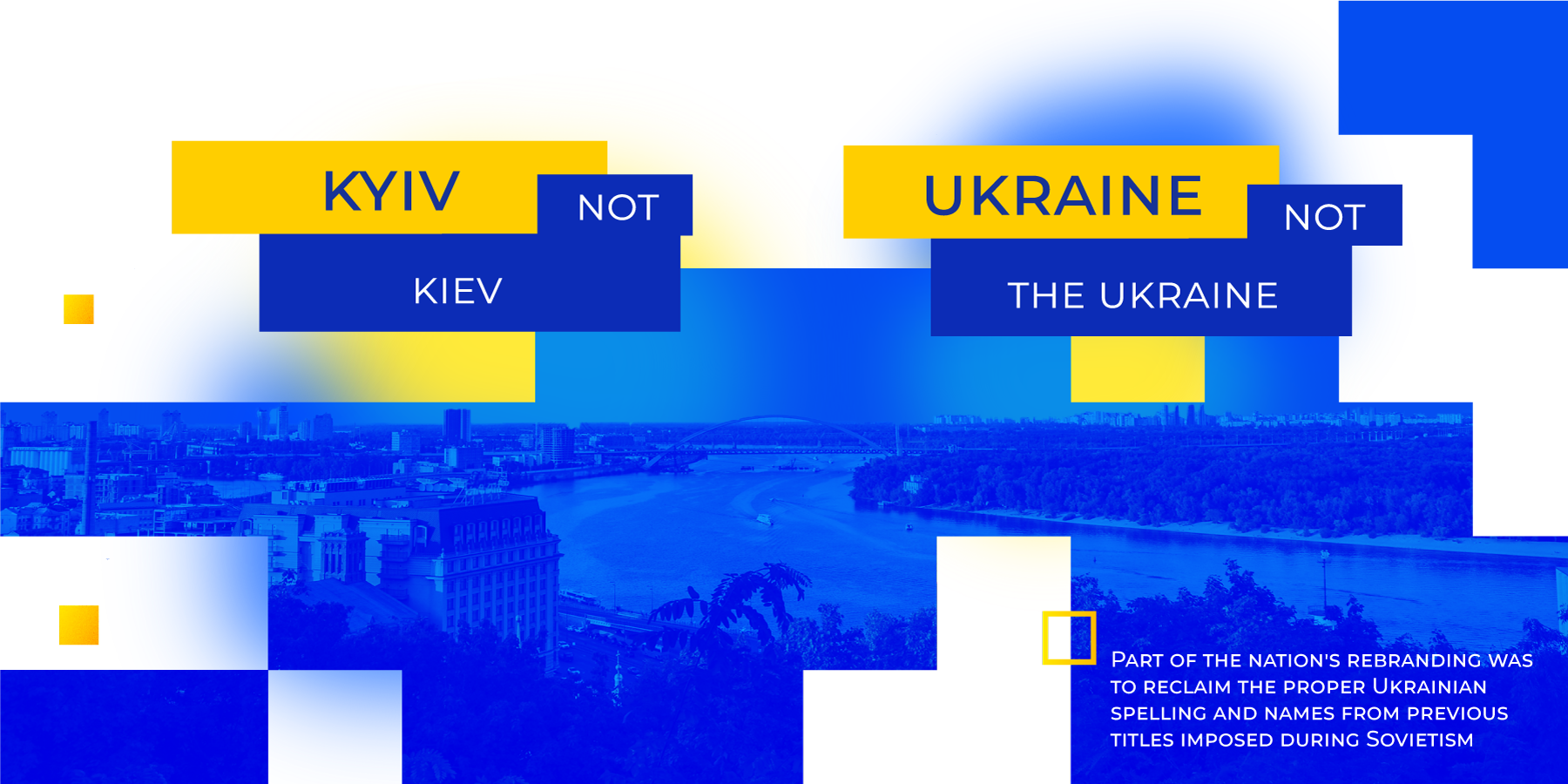
Leading up to the war as a Ukrainian resident, I knew what was happening and what was, unfortunately, likely to come. Unless one was very in-the-know and interested in the affairs of Russia and Ukraine, it seemed that Westerners only really paid attention to such news after the invasion. Now, the colors blue and yellow are everywhere: in stores, represented by “Ukrainian” fashion lines and styles, flags perched on the street support, and most significantly strewn throughout social media. These colors have become synonymous with independence, fearlessness, hope, freedom, and incredible strength in the face of an otherwise tragedy.
Similarly, posts with sunflowers, graphics of the intricate Vyshyvanka embroidery, moving folksongs and poetry, and brave soldiers defending their homeland are all visual campaigns associated with this brand of freedom and democracy for Ukraine.
While Zelensky might be the main character of this heroic saga, the Herculean efforts are equally portrayed by everyday citizens. The viral videos circulating of farmers stealing Russian tanks, defiant Ukrainian women throwing pickle jars at planes, and, of course, “Russian warship, go fuck yourself” are casting Ukrainians as legendary, if not mythological, icon of our time.
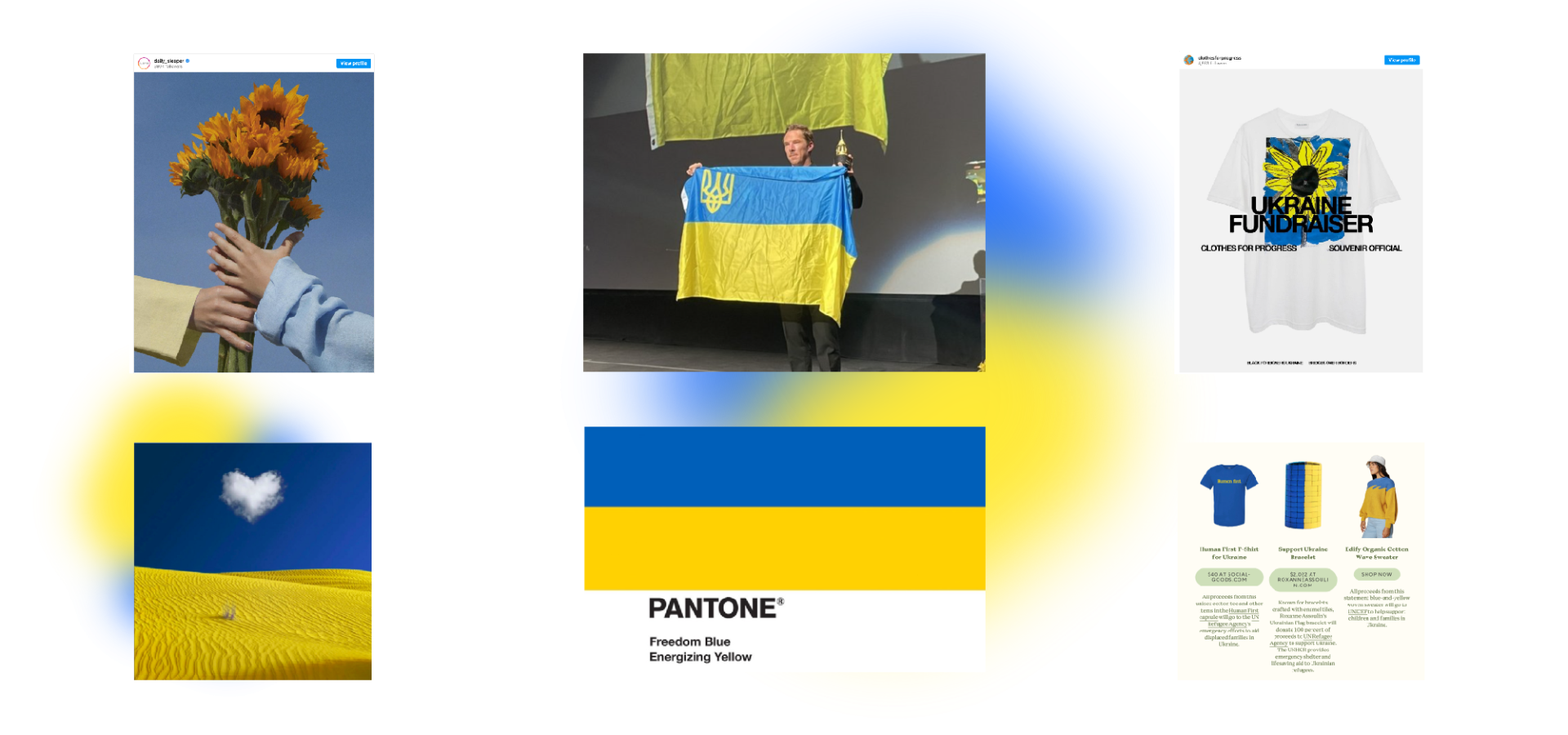
Source: https://www.vogue.co.uk/fashion/article/independen…
https://focus.ua/lifestyle/510080https://focus.ua/lifestyle/508930
https://www.oprahdaily.com/style/a39587697/brands-…
https://www.marketing-interactive.com/pantone-ukra…
So what do these folkloric proportions bring? People want to be associated with such an exalted and immortal character. They want the relatable David to overcome the bully Goliath, the outnumbered Spartans to defeat the Persians. But this is not Sparta; this is Ukraine. And Ukraine? It’s everywhere – on the tips of everyone’s tongue and embossed on popular brand’s logos – a brand within a brand, if you will.
Such brand awareness and collaborations are also present in live performance and celebrity: can you think of another time a president got to have the spotlight at the Grammys, let alone a foreign one? Another example is John Lennon’s son, Julian, performing “Imagine” on behalf of the Global Citizens Stand up for Ukraine concert, a piece that he vowed to never sing publicly.
Of course, we should not forget why such concerts and collaborations are taking place in the first place. While Ukraine is the triumphant underdog of our generation, it’s not without serious loss and heaviness that they must bear this label.
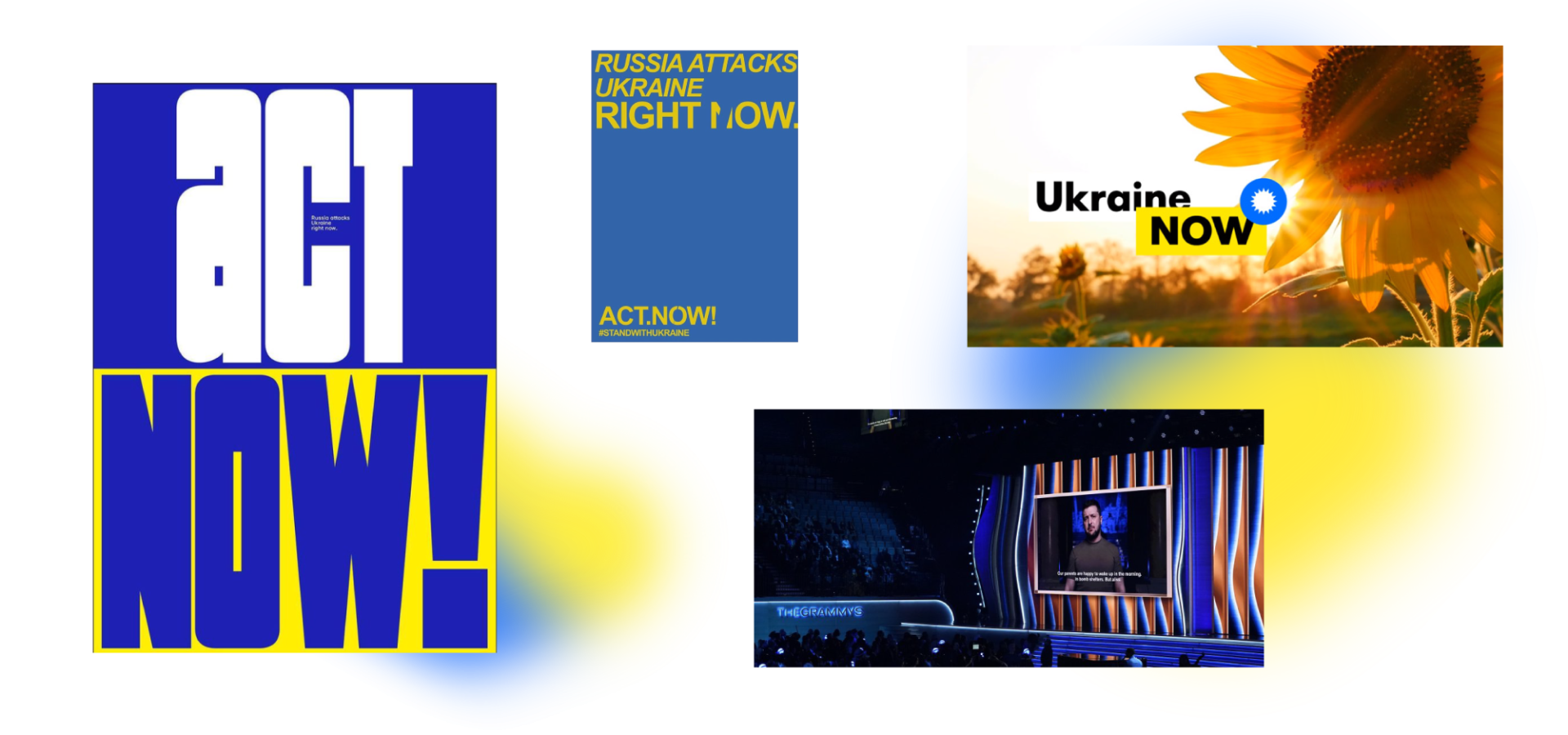
Source: https://www.fastcompany.com/90727022/ukrainian-ad-…
https://mc.today/nas-ne-tak-ponyali-v-pravitelstve…
https://focus.ua/culture/511343-gremmi-po-ukrainsk…
A Ukrainian friend of mine told me, “I don’t want to be brave or strong or resilient anymore… I want to be normal, at peace, bored even.” This kind of grieving for a life once had is complicated to understand and potentially dangerous to try to twist into a “hey, look at all the positive outcomes” narrative. For this reason, I wanted to get the perspective and input from a native, our own Creative Director at SAPHIRA agency, Max Kuzmenko:

Ukraine’s “brand”: what was it before and what is it now?
Before – we were a big and unknown Eastern European country. Now we’re a big and brave society of fearless men and women.
If the country of Ukraine/its people had a slogan or tagline, what would it be?
Stand like Ukraine.




